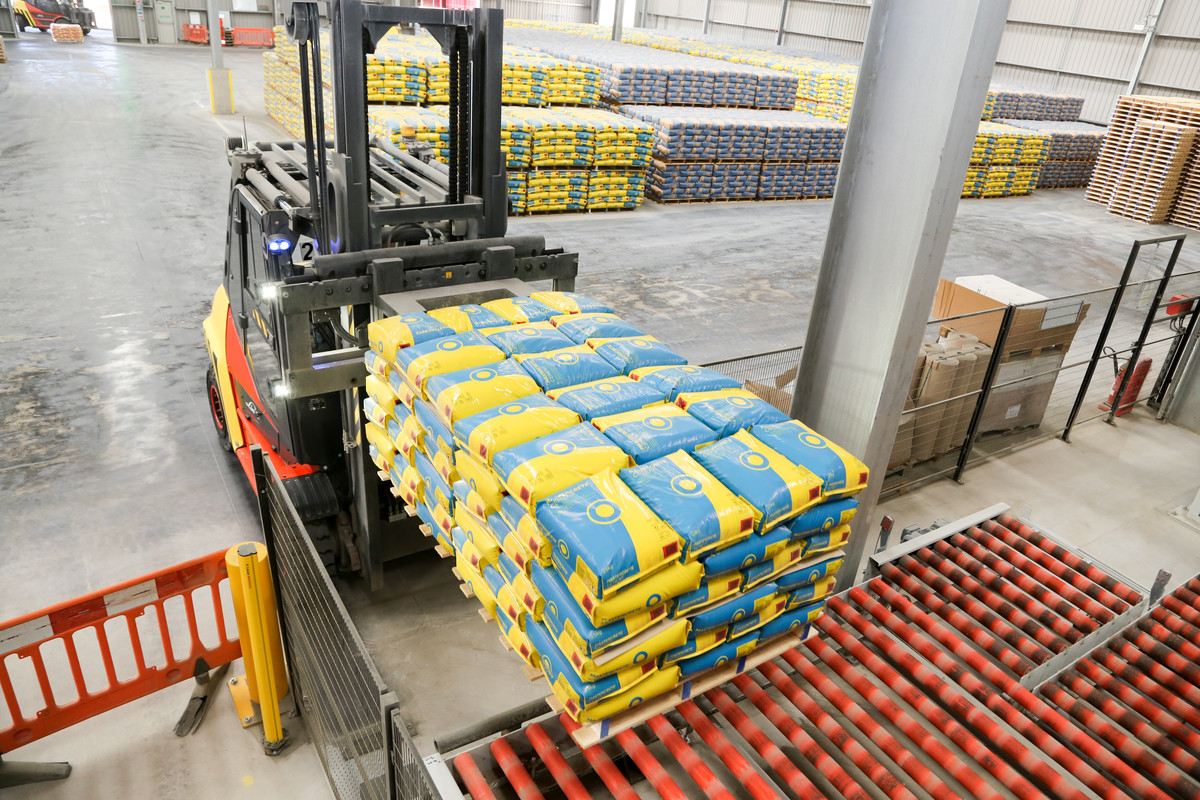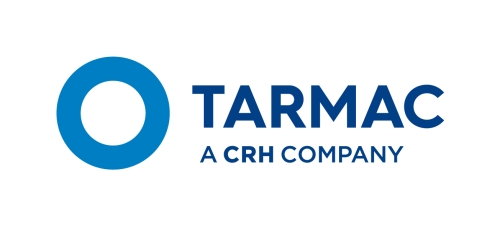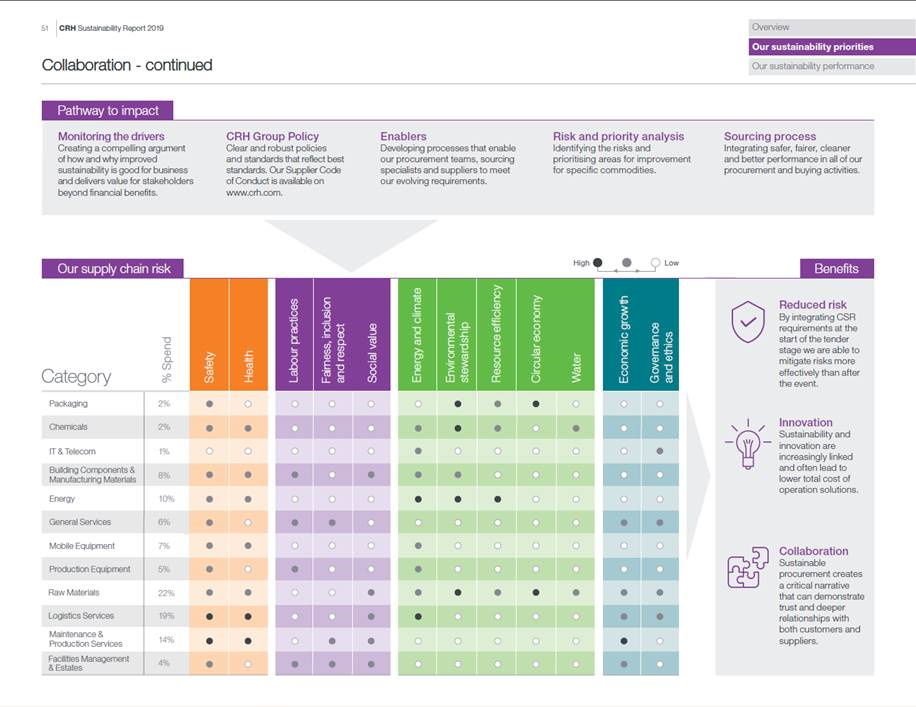sustainable supply chain
“We’re proud to have become the first UK company in our sector to sign up to EV100 and commit to making lasting changes to our car and van fleet. The road to a reduction in carbon requires collective action and sustainable procurement strategies have an important role to play in supporting these ambitions.‘’
Jonathan Harry, procurement director, Tarmac
highlights
Tarmac spends a significant amount on goods and services from 6,000 suppliers every year. We also extract raw materials – such as aggregates, sand and gravel – to use in the manufacture of our products as well as supplying direct to customers. With such a complex supply chain it is important that we understand the impacts of the materials we buy and take direct action to manage the inherent risks associated with them.
Our customers and other stakeholders want assurance that the products we supply are produced in a responsible way. To achieve this, we have streamlined our sourcing strategy into five clear stages, known as our “pathway to impact”.
Understanding Risks and Opportunities
Our approach to procurement is aligned to the principles of the ISO 20400 Sustainable Procurement - guidelines. We actively manage risk as part of our procurement processes, ensuring that we do not become too dependent upon individual suppliers and vice versa. Our major contracts are awarded following a rigorous competitive tendering process and decision criteria include value, quality assurance and sustainability indicators. We assess supply chain risk at a commodity level against twelve different sustainability aspects such as, health and safety, people, communities, labour practices, environment, climate change and governance to form a commodity ‘heat map’. Using a heat map approach means we are able to identify the risk profile of a supplier and understand and leverage areas where improvements can be made. By managing risk and opportunity at a commodity level, we are able to obtain a greater insight into our supply chain and to integrate improvements into commodity strategy plans and procurement decisions.
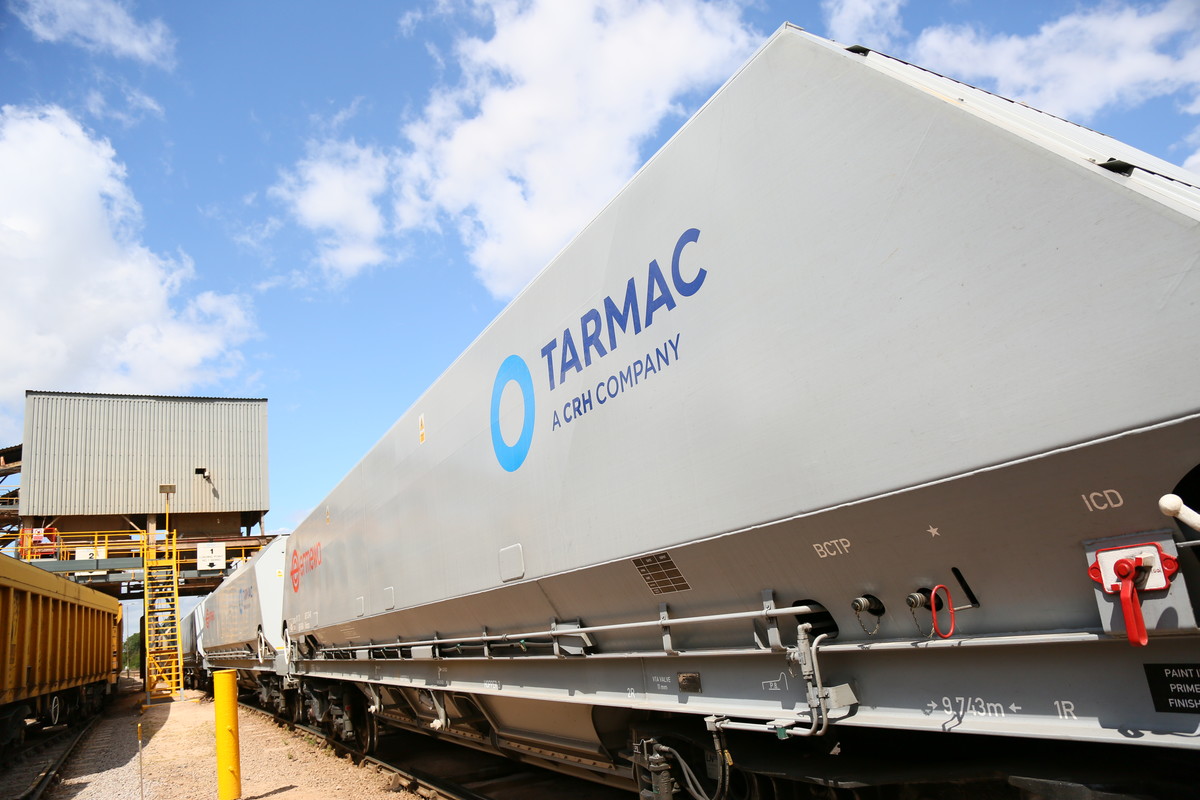
We give our customers confidence in the products we sell by ensuring that we are open and transparent in how our products have been sourced, manufactured and delivered to site. To demonstrate this, we have continued to work throughout the year to ensure that Tarmac’s product range is certified against BES 6001 the framework standard for the Responsible Sourcing of Construction Products and rated ‘excellent’. This is a major achievement for our business and we believe we’re are the first company in our sector to achieve this across the full product range.
We aim to support the transition towards more responsible supply chains across the entire industry. We engage with suppliers, governments, businesses and other partners and collaborate to find new ways to innovate and create positive change. During 2019 we worked with leading supplier, Mascot Workwear, to improve the design and performance of the safety footwear used by colleagues within our contracting business.
Following on from our hugely successful Innovation Challenge in 2018 we have opened the competition once again in 2020 to drive idea generation to support our on-going mission to reduce carbon usage across Tarmac and in our supply chain. We are hoping for as many great ideas as possible, so the challenge is open to all companies and institutions – both current and potential suppliers and collaborators. The best of the entries will pitch their carbon-reducing ideas to a senior management panel from across Tarmac. The overall winning organisation(s) will be invited to work in partnership with us to make their innovative proposal a reality.
Procurement director Jonathan Harry said: “We are really excited about kicking off the Innovation Challenge for 2020 and are very keen to collaborate with some great innovators across our existing supply chain and beyond.'
The UK’s net-zero challenge focuses on two key areas: cutting carbon emissions to as close to zero as possible and capturing / storing or ‘offsetting’ emissions that cannot be eliminated. It is a huge challenge for our industry, but one we’re compelled and motivated to tackle at Tarmac.
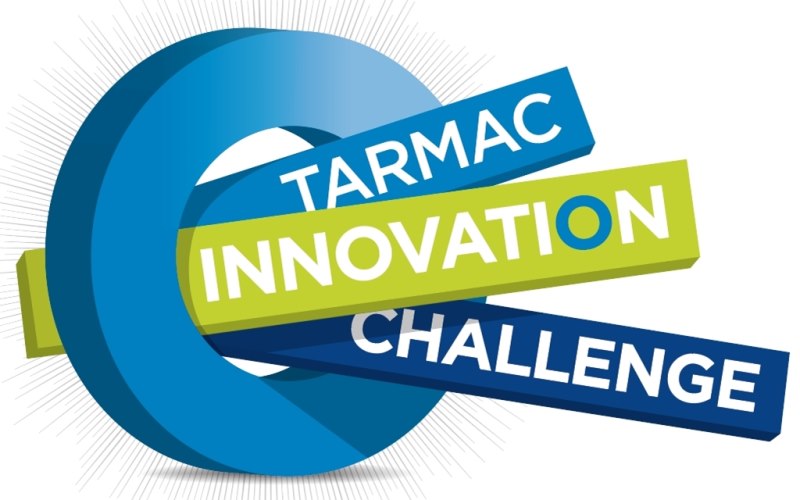
Tarmac is just one of only a handful of organisations to be recognised by BRE (the Building Research Establishment) for its commitment to ethical sourcing practices. The company has been officially verified under BES 6002 the Ethical Labour Sourcing (ELS) standard, which was developed by BRE, in response to the 2015 Modern Slavery Act.
Read more - Commitment to Ethical Labour Standards
Our commitment to human and labour rights is reinforced through our Code of Business Conduct (CoBC), which is implemented across all CRH businesses. We’re confident that we uphold human rights to the highest standards within our own operations. However, being able to say the same thing with confidence about our supply chain is another challenge entirely and one we focus on as a priority.
Tarmac also remain strongly committed to supporting the important work of the Gangmasters Labour Abuse Authority (GLAA) Construction Protocol. Together we have established a voluntary information sharing agreement across key industry participants to raise awareness and drive out modern slavery from the construction sector.
